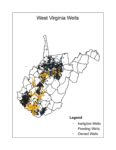HARRISBURG – Attorney General Tom Corbett today urged consumers to carefully consider and thoroughly review any offers to purchase or lease the oil or gas rights for their properties.
“The continuing increase in oil and gas prices has sparked new interest by energy companies, property owners and speculators about tapping into oil and gas reserves that may literally be in people’s backyards,” Corbett said. “As exciting as it is to think about earning new income from natural resources buried under your property, it is extremely important that consumers review all of their options before signing any contract.”
Corbett said that energy firms have increased their exploration and production efforts in many states, including Pennsylvania, where the first commercial oil well was drilled in Titusville in the mid-1800s.
Corbett recommended that any property owner faced with an offer to purchase or lease the rights to their land should carefully review the proposal with a lawyer. He said that a private attorney can help evaluate offers, review your legal rights, explain the potential benefits and consequences of these transactions and help negotiate the best deal for you – should you decide to proceed with an oil or gas lease.
“Selling or leasing the rights to your land should never be taken lightly because it means giving up certain privileges and ownership rights for parts of your property,” Corbett said. “These leases can affect the value of your property, your ability to sell your home or your land, and can give others broad access to your property for an extended period of time.”
Corbett said that property owners interested in the sale or lease of their oil or gas rights should carefully consider the following points:
- Mineral leases and sales agreements are binding contracts – Be sure to understand all the terms, payments and conditions before you sign any documents.
- The sale or lease of mineral rights is usually filed with the county office where the deed to your property is recorded – This may affect your ability to sell or develop your land, or borrow against it.
- Exploration and drilling can involve large rigs and heavy equipment – Access roads may need to be installed, areas surrounding any wells may need to be fenced off, and contractors, subcontractors and others may come and work on your property.
Corbett offered the following tips for property owners considering the sale or lease of their oil or gas rights:
- Do not sign or agree to anything without understanding all the terms and getting professional advice – Don’t feel pressured into any quick decisions.
- Consult with an attorney – If you do not know a lawyer specializing in oil and gas law, contact your local bar association for a referral.
- Consider joining together with neighboring landowners to share the cost of consulting with an attorney.
- Know who you are dealing with – Get referrals, research the company, ask other property owners about their experiences and check for lawsuits or other problems.
- Negotiate a deal that you are comfortable with, and get everything in writing – Your attorney can help you include important provisions in an agreement to protect your rights.
Corbett added that the key provisions of any contract are negotiable, including: a fair sale price or royalty amount; protection for any harm done to your home, your property, or the environment; provisions giving property owners the ability to approve or reject things like the placement of wells and tanks, and how and when exploration and drilling can occur; and language addressing whether the lease or rights can be sold to other companies without your approval.
In addition to consulting with an attorney specializing in oil and gas law, Corbett said property owners may want to review the following state resources:
Pennsylvania’s Department of Environmental Protection Bureau of Oil and Gas Management – This agency controls permits for drilling and exploration and also monitors active sites.
Pennsylvania’s Department of Conservation and Natural Resources Bureau of Topographic and Geologic Survey – This office has general information and maps on past and existing oil and gas fields throughout Pennsylvania.
NOTE: While these offices may be able to provide general information about oil and gas drilling, they cannot give advice or answer legal questions you may have about your property.










